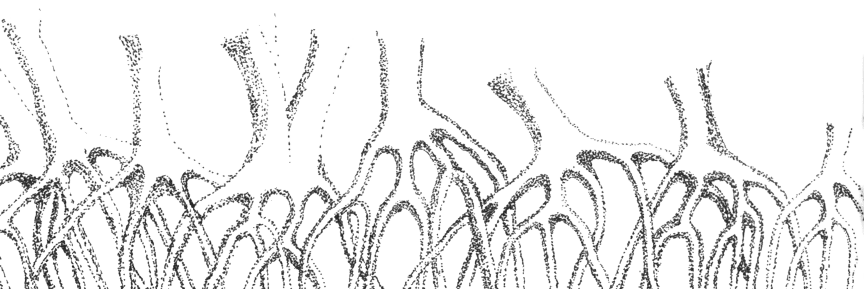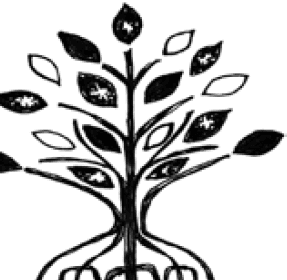Otros Peces de Luz en el Mar de los Sueños
Alex Fleites
En julio 2008 conocí a Marjorie Evasco. Fue durante la XVIII edición
del Festival Internacional de Poesía de Medellín, Colombia, uno de los eventos
más deslumbrantes en su tipo a escala mundial. Participamos juntos en lecturas
colectivas, y viajamos, con otros poetas, a la ciudad de Tunja, en la cordillera oriental
de Los Andes, a 2 822 metros sobre el nivel del mar. Dos poetas de islas tropicales
momentáneamente trasplantados a los fríos páramos andinos.
Alguien dijo que, después de la poesía, lo mejor es la amistad entre
los poetas. Y Marj y yo somos una prueba de ello. Desde entonces nuestra
correspondencia se hizo copiosa, tórrida. Hablamos de las respectivas familias, de
las inclemencias de tifones y huracanes, de proyectos, de sueños, de obsesiones, de
dolencias de los cuerpos y de las almas y, sobre todo, del misterio de la creación
artística, algo que a ambos nos fascina.
En algún momento surgió la idea de escribir a dos manos textos breves.
La fórmula de las tanrengas era la ideal. Alguno enviaba tres versos y el otro
correspondía con dos; luego se intercambiaban los roles. Era más una acción del
espíritu que de la literatura. Los poemas fueron concebidos sin pretensión de libro.
Una suerte de gimnasia del alma en dos puntos muy distantes en el mapa. El lenguaje
de la poesía, su carácter sanador y luminoso, brotando durante meses que luego
fueron años. Logramos tal afinidad de sensibilidades, que ya no sabríamos decir a
quién corresponde estos o aquellos versos. Y esa fue nuestra recompensa mayor,
formar una suerte de entidad cósmica. Al menos yo lo sentí así.
Una selección apretada de aquellos “ejercicios” finalmente salió al mundo en 2013, bajo el sello editorial Sipat Publications: Fishes of Light / Peces de luz, edición en inglés y español, primorosamente cuidada por generosos amigos, devotos, como nosotros, de la belleza.
Fue una verdadera bendición conocer a Marj, disfrutar de su alerta sensibilidad, que se trasmuta en una poesía de altísimos kilates. Hablo de una poesía que acompaña, contra la que nada podrá el paso corrosivo del tiempo.
Echo al mar nuevos peces de luz. Ahora asumo los dos roles. Algunas palabras son mías; otras, las escribió ella con mi mano. ¿Cómo? ¿Cuándo? No sabemos. ¿Acaso hay que buscar una respuesta para todo?
Ella intenta escribir,
la ventana entreabierta,
a la luz exclusiva de la luna
Él, distante, escucha los versos
que no acaban de nacer.
Alex Fleites (Caracas, Venezuela, 1954)
Poeta, narrador, editor, periodista y curador de arte. Entre sus libros de poesíase cuentan A dos espacios (1981, Premio Nacional de Poesía Julián del Casal), De vital importancia (1989), Ómnibus de noche (1995), Un perro en la casa del amor (2004) y Ángel con ala rota (2020, Premio de la Crítica).
Other Fishes of Light in the Sea of Dreams
Alex Fleites
In July 2008, I met Marjorie Evasco during the 18th International Festival of Poetry in Medellín, Colombia, one of the most dazzling events of its kind worldwide. Together we participated in joint readings, and with other poets, we traveled to the city of Tunja in the eastern mountain ranges of the Andes, at 2822 meters above sea level, two poets from tropical isles momentarily transplanted into the cold, high altitude Andean land.
Someone said that after the poetry, the best part is the friendship among the poets. Marj and I are examples of it. Since then, our correspondence has become voluminous and passionate. We spoke about our respective families, the inclement weather of typhoons and hurricanes, projects, dreams, obsessions, physical and spiritual pains, and the mystery of artistic creation, which fascinated us both.
At some point, the idea of us writing in “two hands” in short lines came up. The form of the “tanrenga” seemed to suit this very well. One of us sent three lines, and the other answered with two; after that, we changed roles. It was more of a spiritual effort than literature, as the poems were conceived without scholarly pretensions. It was a synchronicity of the soul’s acrobatic leaps at two points, geographically so far away from each other. The language of poetry, its healing, and its illuminating nature freely flowed forth for months and years. We have reached that closeness of sensitivity that we can no longer say who wrote these or those verses. And that was our biggest recompense, serendipitously forming a cosmic entity. At least, that was how I felt.
In 2013, selections from those “exercises” finally came to light under the seal of Sipat Publications: Fishes of Light / Peces de luz, an edition in English and Spanish, exquisitely cared for by generous friends and devotees of beauty like us.
It was a real blessing to have known Marj, to delight in her acute sensitivity, transformed into a poetry of the highest quality. I speak of poetry that accompanies us, which the corrosive passage of time will never touch.
I toss new fishes of light into the sea. Now I assume the two roles. Some words are mine; she writes others with my hand. How? When? We do not know. Perhaps we need to find an answer for all?
She tries to write,
the windows half-open,
to the exclusive light of the moon
He, far away, listens to the verses
that never cease to be born.
Alex Fleites (Caracas, Venezuela, 1954)
Poet, narrator, editor, journalist and art curator. Among his books of poetry are A dos espacios (1981, Premio Nacional de Poesía Julián del Casal), De vital importancia (1989), Ómnibus de noche (1995), Un perro en la casa del amor (2004) and Ángel con ala rota (2020, Premio de la Crítica).
(Translation: Alice M. Sun-Cua)








